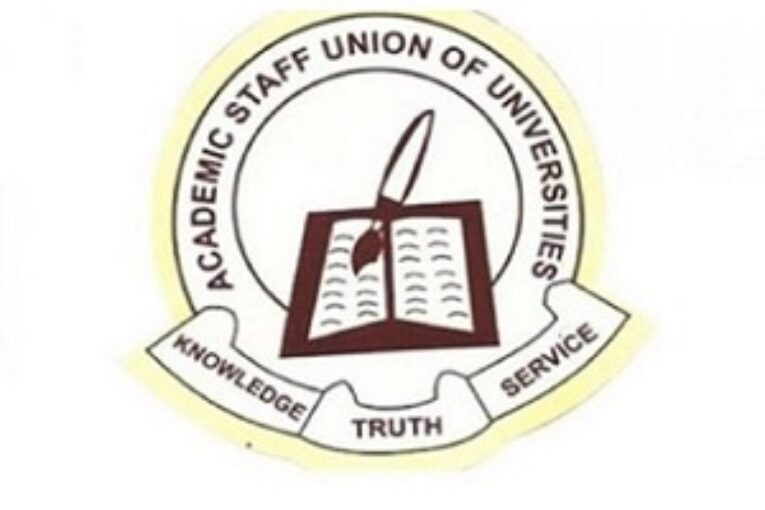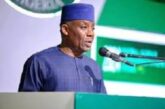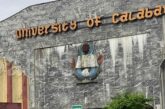
THE leadership of Academic Staff Union of Universities (ASUU) has asked President Bola Ahmed Tinubu administration to prioritise education, insisting that if Nigeria is to break free from the vicious cycle of backwardness and underdevelopment, education must be placed at the centre of national rebirth.
ASUU president, Professor Chris Piwuna, lamented that successive administrations in the country give scant attention to the development of the education sector, which he described as key to achieving meaningful development of any nation.
He told Nigerian Tribune that unless governments at all levels stop paying lip-service to education and begin to invest genuinely in the development of the sub-sector, the country would continue to be underdeveloped.
Piwuna particularly noted that funding had remained the major challenge of public education in Nigeria, while also advocating for an education summit, where people would sit together to deliberate on the sort of education system that is best suited for the country.
“It is through education that the citizens are empowered, values are instilled, innovation is birthed, creativity promoted and formidable nations are built.
“There is a need for an education summit where we sit together to deliberate on the sort of education system that we want. One of the major challenges of our public education is funding,” he stated.
The ASUU president highlighted the critical place of funding in education, noting that all the union’s agreements with the Nigeria government, to-date, have always made well thought-out recommendations on education funding.
He said: “We call on the ruling class to create the environment for genuine engagement with Nigerian academics along this trajectory.
“It is axiomatic that Nigeria’s youth, who make up over 60 per cent of the population, represent both its greatest asset and its gravest risk. On one hand, they are dynamic, innovative, entrepreneurial, and digitally savvy and connected.
“On the other hand, they are frustrated, angry, unemployed, agitated and increasingly disillusioned. The depth of youth anger is getting deeper with the potential for organised civic action.
“However, without meaningful reforms and opportunities, such energy could be redirected into more radical or destructive expressions. The ‘End SARS’ riots that swept across the nation a few years back is a graphic demonstration of this fact.
“While the informal economy keeps millions afloat, yet it receives little attention in national policy considerations. Attempts at economic diversification – particularly in technology and agriculture, show promises but require bold long-term commitment and infrastructure development.
“There is the question of sincerity of purpose of these reforms as well as the ideological felicity that informs them.
“The ongoing massive brain-drain, characterised by emigration of professionals and young graduates seeking greener pastures abroad is a damning indictment on those who manage our affairs and a testament to the unmitigated failure of their ill-informed policies and reforms.
“Perhaps nothing speaks more loudly to Nigeria’s current state than the widespread insecurity that grips the land. From Boko Haram in the North-East to banditry in the North-West, the hydra-headed farmers-herders conflicts in the North Central, kidnapping in the South, and secessionist agitations in the South-East, jungle justice across the country, it is obvious that no region is immune.
“The deepening climate of fear not only stalls development, it also expands the fault lines among Nigeria’s diverse ethnic and religious groups. Security agencies are overwhelmed and public confidence in their ability to safeguard lives and property continues to wane. Without peace and stability, development remains a mirage,” the ASUU President stated.
He asserted that Nigeria that is so rich in human and natural resources remains trapped in a nest of underdevelopment because of the collective failure to prioritise education.
According to him, Nigeria is over 60 years, and it is unfortunate that the country still continues to wrestle with political instability, governance crises, multi-dimensional insecurity, economic uncertainties and neoliberal imperialist assaults, social discontent and disequilibrium, debilitating and suffocating mass poverty, and most glaringly, a bastardised, debased, underfunded and deteriorating education sector.
“The question remains: how can a country so rich in human and natural resources remain trapped in a nest of underdevelopment?
“The answer lies partly in our collective failure to prioritise education, the bedrock of any sustainable progress and development. You cannot develop a knowledge-based economy without a strong education system. Similarly, a viable people-centered democracy is impossible without the involvement of educated and informed citizenry,” Piwuna stated.
Tribuneonline




